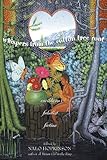Admission is free and open to the public. She will receive an honorary doctorate of letters from Skidmore President Phillip Glotzbach. Following her presentation she will respond to audience questions and participate in a book signing.
Author of a wide range of books, including novels, memoirs and polemical works, Kincaid is perhaps best known for “Annie John,” “Lucy,” “At The Bottom of the River,” “Autobiography of My Mother,” “Mr. Potter” and “A Small Place.”
Kincaid is a professor at Harvard University and a long-time visiting writer each July at Skidmore’s New York State Summer Writers Institute.
http://www.skidmorenews.com/?p=6100








 The lushness of language and the landscape, wild contrasts, and pure storytelling magic abound in this anthology of Caribbean writing. Steeped in the tradition of fabulism, where the irrational and inexplicable coexist with the realities of daily life, the stories in this collection are infused with a vitality and freshness that most writing traditions have long ago lost. From spectral slaving ships to women who shed their skin at night to become owls, stories from writers such as Jamaica Kincaid, Marcia Douglas, Ian MacDonald, and Kamau Brathwaite pulse with rhythms, visions, and the tortured history of this spiritually rich region of the world.
The lushness of language and the landscape, wild contrasts, and pure storytelling magic abound in this anthology of Caribbean writing. Steeped in the tradition of fabulism, where the irrational and inexplicable coexist with the realities of daily life, the stories in this collection are infused with a vitality and freshness that most writing traditions have long ago lost. From spectral slaving ships to women who shed their skin at night to become owls, stories from writers such as Jamaica Kincaid, Marcia Douglas, Ian MacDonald, and Kamau Brathwaite pulse with rhythms, visions, and the tortured history of this spiritually rich region of the world.